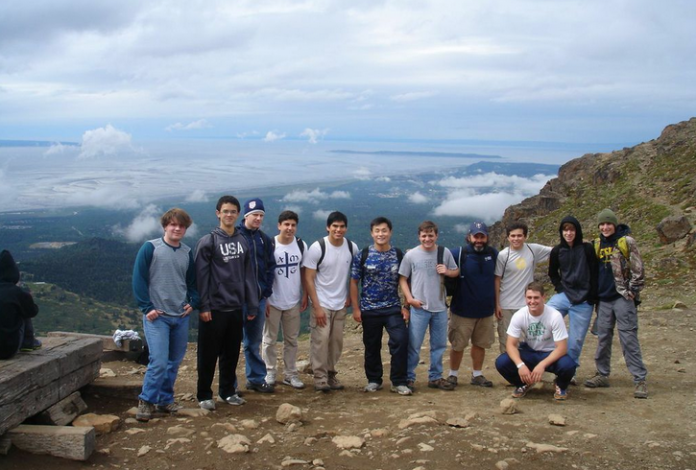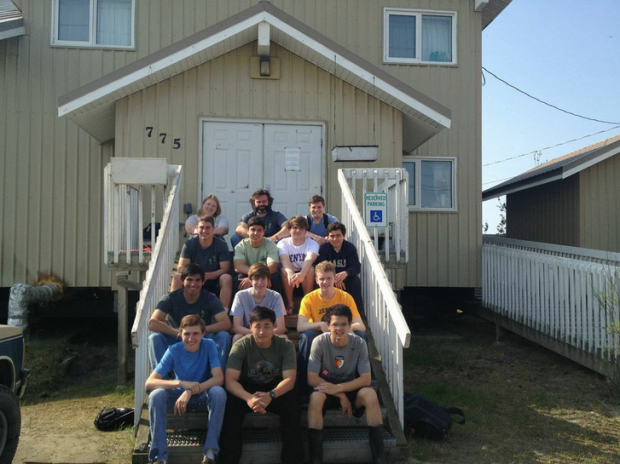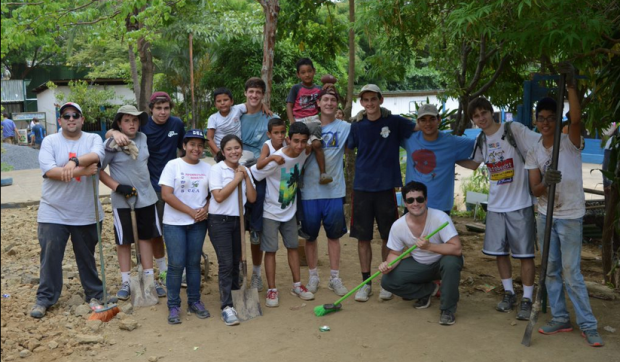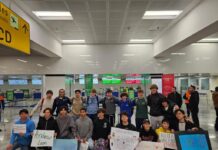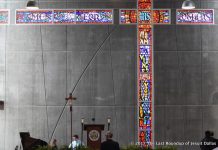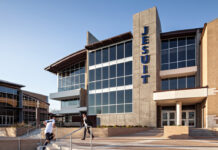For most students at Jesuit, their trips around the world, days at the beach, or concerts from the summer leave them eager to share their experiences as soon as they return to the 28 acres in August. While many think of only enthralling and adventurous trips to talk about, a group of about 50 students returned with a new acquired sense of gratefulness.
This summer, Jesuit students and faculty traveled to Nicaragua, Alaska, and Peru on the annual Summer Immersion Trips. A total of 44 students and ten faculty members traveled throughout June and July. English teacher Mr. Chris Patterson ’08 described the term ‘immersion’ as a partaking in “cultural immersion events, not entirely service, and getting immersed in how a way of life is.”
Mr. Patterson went to Bethel, Alaska, with a group of about 10 students and Mr. Anthony and Mrs. Kelli Mattacchione only two days after the last day of finals. “We were in Anchorage for two days, and then we went to Bethel, which was a town of about 6,000 people, and we stayed at the Catholic church there, which only has one staff member.” Mr. Patterson contrasted the trip to ones offered when he was a student, recalling that Jesuit had Immersion Trips on “a much smaller scale, I don’t think they did as many and Mr. Bob Lanier used to do immersion trips to South America that were science-based.”
However, Mr. Patterson believes that the modern Immersion Trips are “important because the community service aspects are obviously beneficial…The immersion trips are a little different in how they are beneficial because I think there’s a Jesuit ‘bubble’ that we all get into during the school year where we do the same thing and go to school with the same people all year and [the immersion trips] are an opportunity to see how other people live, even in our own country…To be confronted that close and see dysfunction like that is really important to get different perspectives and remind yourself that your life is very different and you shouldn’t get caught up in what you know.”
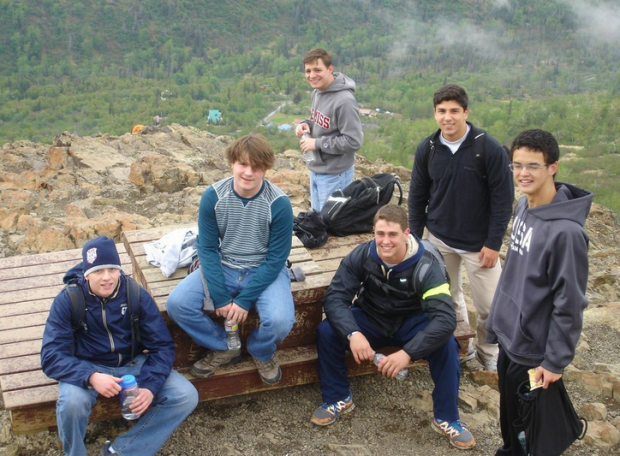
Mr. Mattacchione, a community service director, stressed that “experiencing Alaska will change your view on our own social climate with in the USA. Towns like Bethel are in every state and county. Issues of domestic violence, addiction and poverty are all around you and in your face. Helping, living and working around the Immaculate Conception Catholic Church placed our group in the heart of all these issues and brought to light the reality that not everyone is treated equally and not everyone has access to a healthy lifestyle.”
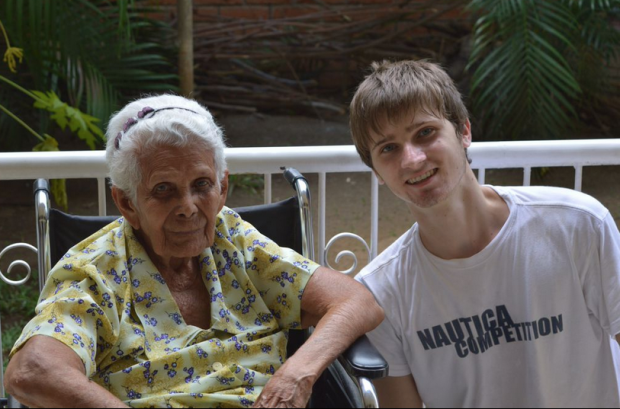
Another group of 20 students traveled to Nicaragua for eight days, and a different group of seven traveled to Peru for ten days. For Mr. Rich Perry, Community Service Director, all three trips came out of the same “ethos.” He elaborated that “it is about encountering injustice by working hand-in-hand with local people. You’re learning three things simultaneously. You’re learning how to respect a different culture and way of life, while you are making friendships, while you are also doing work hand-in-hand with your brothers and sisters from a different city or country to make an impact together…”

Later, Mr. Perry stressed that, “It’s important not to mimic a third-world condition, that can be insulting. It’s better to live in solidarity and simplicity with the local people who you’re creating friendships with.” Although the idea of a trip like this may seem like nothing but work or service, Mr. Perry recalled the best experience for the students going to Nicaragua was working at the nursing home and taking the elderly, who have never been to the beach, to go swimming and to sit with them in the water. “To me, it was sacramental… it was to me, a way our students were living out their faith by going out of their comfort zone, trying to speak Spanish… because all of those differences didn’t matter then.”
Further, the reason he thinks students should embark on this trip is so that they can get outside of their comfort zone. However, a powerful effect doesn’t always come from the trip itself, and Mr. Perry believes “that the real power is in returning changed. Returning reflective. Returning and being more open. That’s what’s most powerful; not leaving the ‘bubble,’ but returning.”
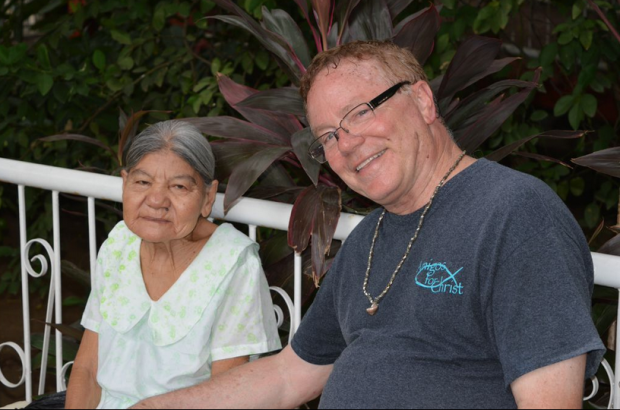
The Nicaragua group built a new cafeteria and concession stand for the local school, fully funded their new basketball court, and funded one of their classrooms. The days consisted of a simple breakfast, about four hours of work and a light lunch at noon. Then, students got a break from work to swim, play volleyball, or simply talk with the locals from the Jesuit high school there. Then, every night, the group met for reflection, journaling, and prayer.
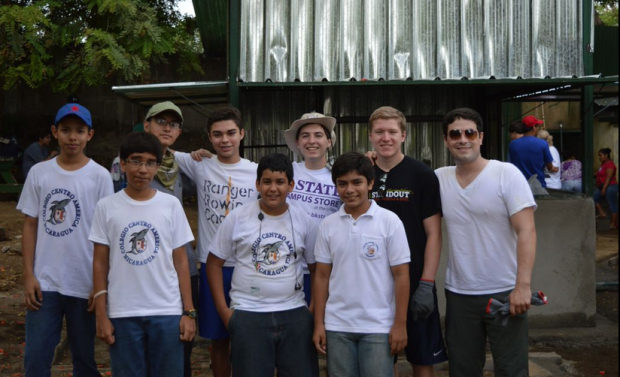
Overall, the trips provided a new perspective for Jesuit students and faculty alike, and immersion trips seem to be garnering more and more attention with their continued success. With more than 200 applicants last year, Mr. Mattacchione explained that “There are big plans for growing the Domestic Immersion trip experience. Ms. [Regina] Progar and I are working in taking two groups to Los Angles in the fall. A group of six seniors [plan] to live on skid row at the Cardinal Manning Center and a group of juniors to live at Dolores Mission. Both programs to run Wednesday to Sunday in November and December. In January during the same time period of the Mr. Jack Fitzsimmons’ El Paso trip, I will be taking a group of six students and another (yet to be named) faculty member to work with Youth Build New Orleans and Boys Hope Girls Hope. One day of the trip will also involve working with Miracle League of New Orleans.” He concludes with saying, “we definitely will be going back to Alaska as well and adding things to the trip experience.”
For next year’s trips, students should look forward to many more options. An application will be available in January for any of the trips. Financial aid is available for the trips; see Mr. Perry in Community Service for more information.


